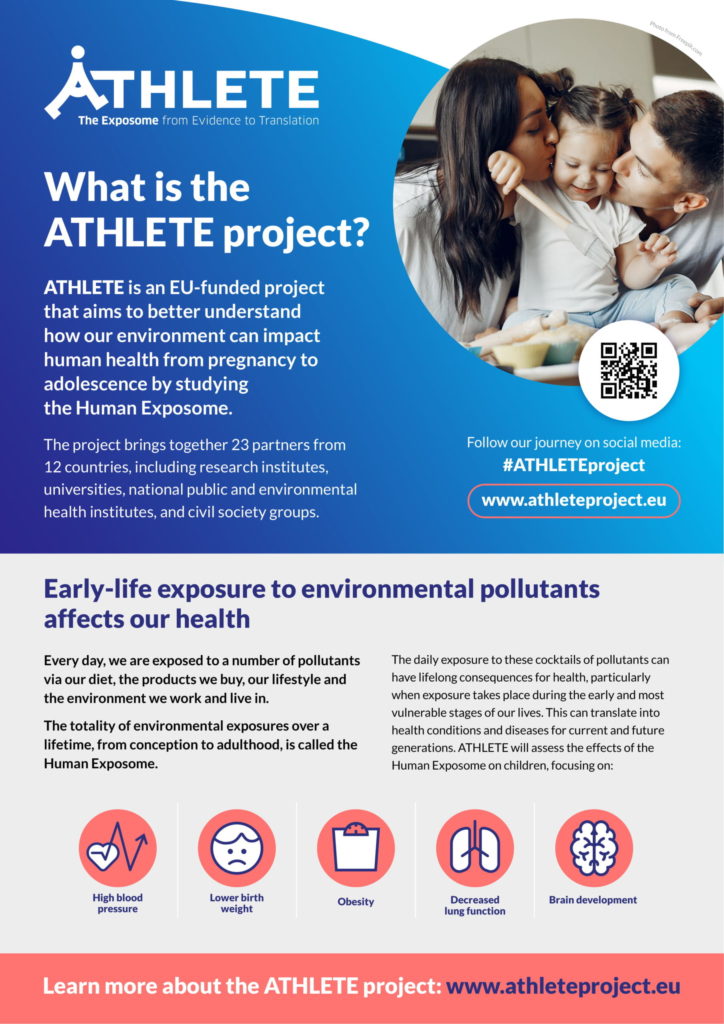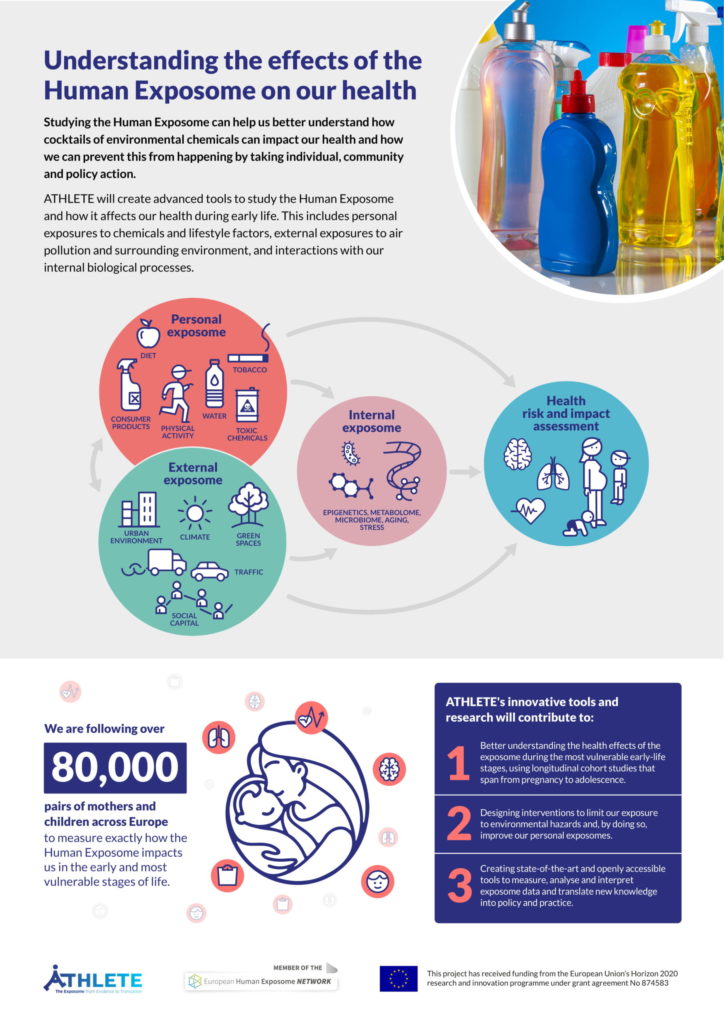HEAL welcomes the call from 250 scientists urging the European Commission to follow scientific recommendations and include provisions to account for the effects of chemical mixtures to better protect health in the upcoming revision of REACH, the EU’s regulation for chemicals.
Have you ever wondered whether and how our everyday environment and activities affect our health? The ATHLETE project is designed to answer these questions by studying the Human Exposome – the totality of environmental exposures from conception to adulthood. Today we are excited to launch a new flyer and video to present the key activities of our research project.
Click here to download the ATHLETE flyer
Every day, we are exposed to a number of pollutants via our diet, the products we buy, our lifestyle and the environment in which we work and live. Our daily exposure to these cocktails of environmental pollutants can have lifelong consequences for health, especially when exposure takes place during the early and most vulnerable stages of our lives.
The flyer and video launched today are introducing the ATHLETE project and how we are bringing together scientists and specialists from 23 partner organisations to study the Human Exposome. They illustrate how ATHLETE can help us better understand how environmental pollutants affect our health over a lifetime and how we can prevent this from happening by taking individual, community and policy action.
ATHLETE is following over 80,000 pairs of mothers and children across Europe to measure exactly how the Human Exposome impacts us in the early stages of life. We are assessing the health impacts of the Exposome on children, focusing on:
- High blood pressure
- Lower birth weight
- Obesity
- Decreased lung function
- Brain development
ATHLETE’s innovative tools and research will lead to:
- A better understanding of the health effects of the Exposome during the most vulnerable life stages, using longitudinal cohort studies that span from pregnancy to adolescence.
- The design of interventions to limit our exposure to environmental hazards, and by doing so, improve our personal exposome.
- Creating state-of-the-art and openly accessible tools to measure, analyse and interpret exposome data and translate new knowledge into policy and practice.




